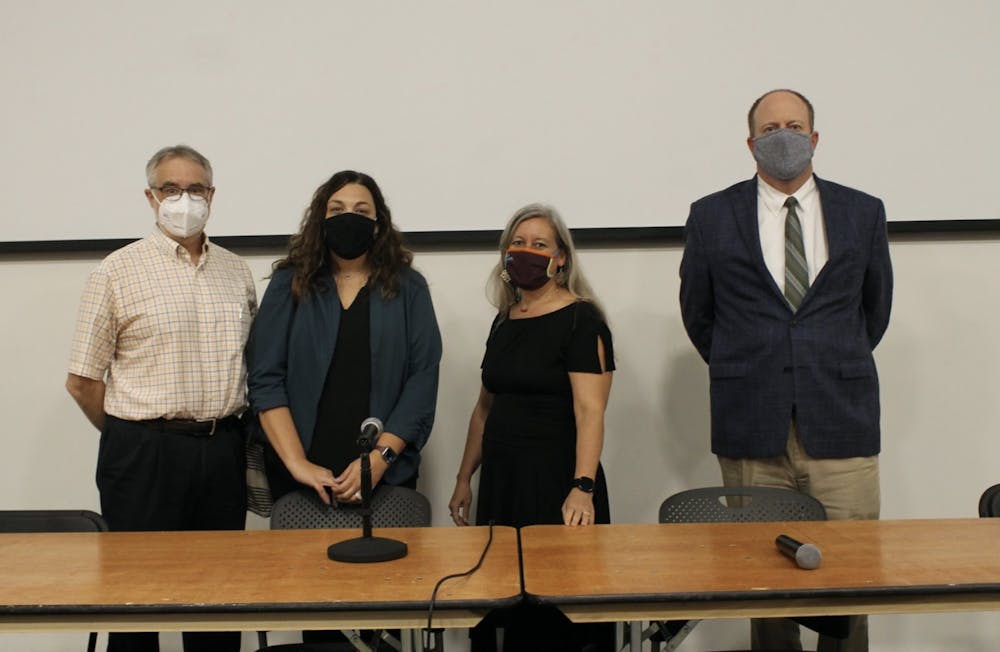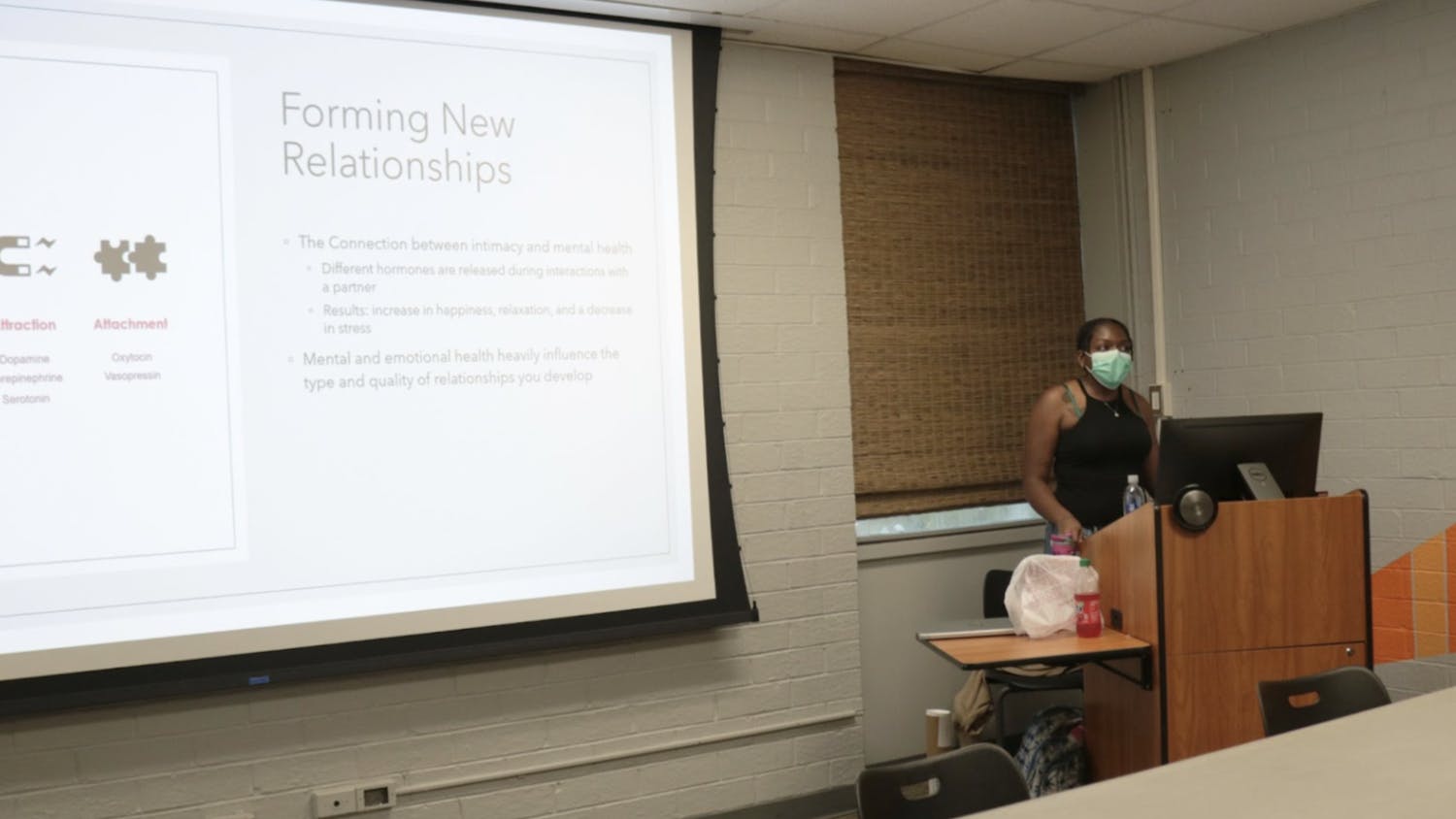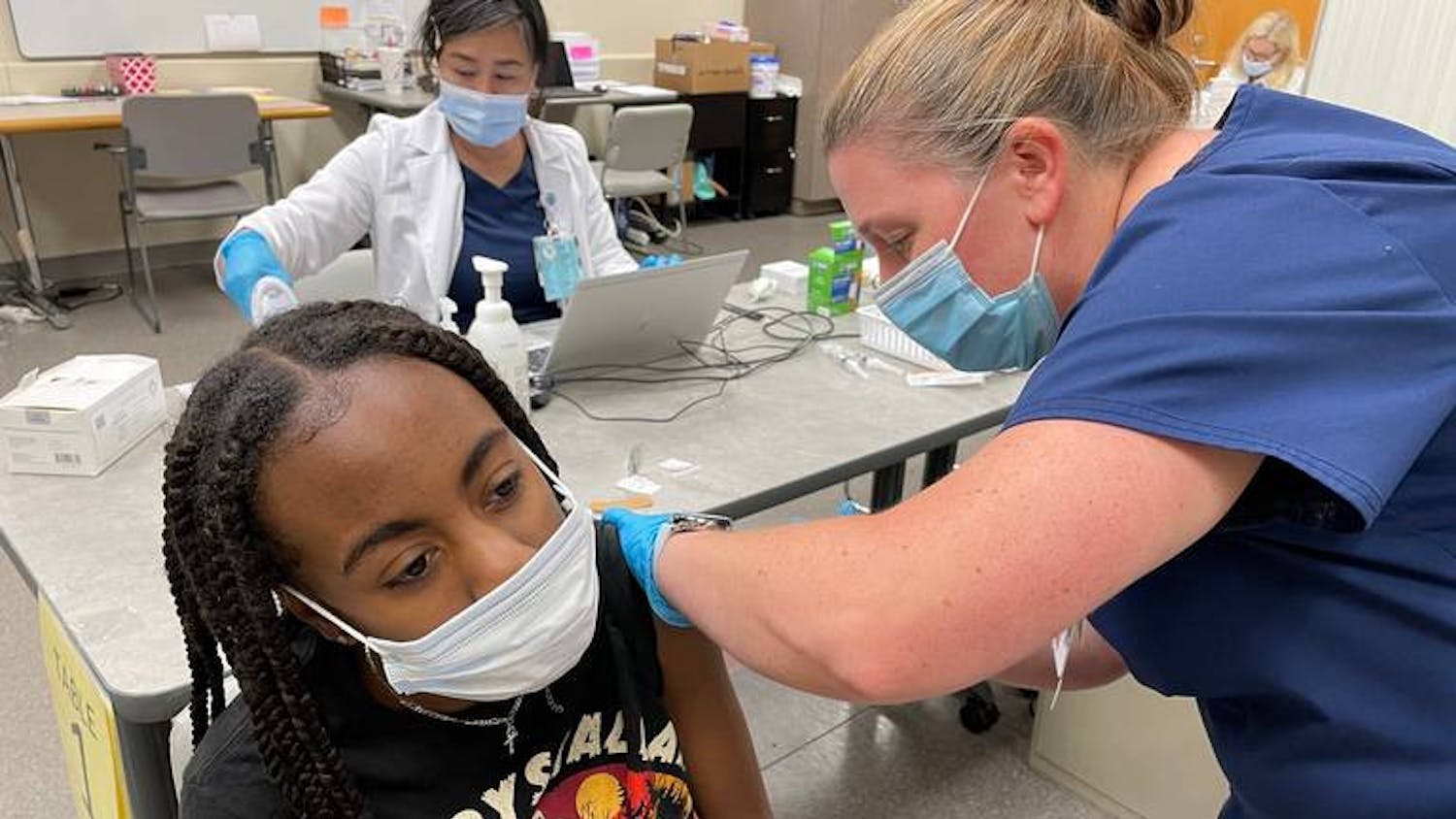A public debate on vaccination mandates hosted by Theta Alpha Kappa and the Global Health Association was held Oct. 26 in Willet Auditorium. The disputation was held in recognition of Reformation Week, a week meant to celebrate the beginning of the Protestant reformation on Oct. 31, 1517.
Professors Paul Lewis of the religion and theology departments, Laura Simon of the sociology department, Amy Nichols-Belo of the global health department and Will Jordan of the political science department all spoke from their respective fields on whether the world would need vaccine mandates for the COVID-19 pandemic.
The debate opened with Jordan speaking on the political theory of the vaccine mandates and recognizing if the government had the right to impose such a mandate on its citizens.
Citing 19th-century social theorist John Locke, Jordan said that he thought vaccine mandates would be justified in a regime committed to individual liberty and limited government.
“If an epidemic is raging, and if vaccinating me is necessary to prevent the further spread of the disease that could kill you, Locke would surely think that I could be legally coerced out of my negligence,” Jordan said.
Nichols-Belo followed Jordan from a medical point of view, presenting a short discussion in epidemiology.
Nichols-Belo compared the R0, a term measuring how contagious an infectious disease is, of the original COVID-19 outbreak in March 2020 to that of the delta variant of COVID-19 that has now spread throughout the United States.
“The first (coronavirus), the one we all came to know in March of 2020 had an R0 of about two which is, by the way, the same as influenza virus every year,” Nichols-Belo said. “So when you have an R0 of two. That means one person on average will infect two people.”
Nichols-Belo said that the delta variant of coronavirus had an R0 of about five.
According to Nichols-Belo, at least an 80% vaccination rate would be enough to slow down the spread of the delta variant of COVID-19. She argued that the vaccine mandate would be required to lower the spread of the delta variant as well as the original and any other variants sure to arise if people remain unvaccinated.
After Nichols-Belo spoke, Simon took a stance both for and against the idea of the mandate looking at how different populations would see a vaccine mandate.
Simon discussed the disparities in various racial populations on the trust of vaccines after reviewing a 2020 article from the Journal of the American Medical Association researching attitudes towards overall vaccine mandates recognizing disparities among race, gender and political affiliation.
“So about 43.6% of the Black respondents in the sample agreed with the mandates, relative to about 63% of non-Black respondents kind of coupled together,” Simon cited. “And again, highlighting some of what I expected given the complexity of medical racism in society.”
Simon thought that the trust in the community needed to be developed first before more people would be on board with the vaccines.
Finally, Lewis spoke from a religious perspective and said he agreed with the idea of a vaccine mandate.
“By supporting mandates, we can be acting, participating in God's work in preserving and caring for the world, and even redeeming the world from a bad situation,” Lewis said.
Lewis discussed how none of the larger bodies of major religious traditions are truly against vaccinations and said that religion focuses on the good of others rather than just the good of oneself. He cited Jesus from the Christian Bible as an example of this.
“He gets into conflicts with religious leaders all the time because he doesn't follow the right religious practices," Lewis said. "You know, ultimately, he was crucified, giving up his life for the particular cause."
After opening up the debate to questions and answers from the audience to clear up some arguments made, the event ended after a little under an hour with the professors staying to ask individual questions.
Each of the professors in the debate encouraged all students to get vaccinated if they can.





